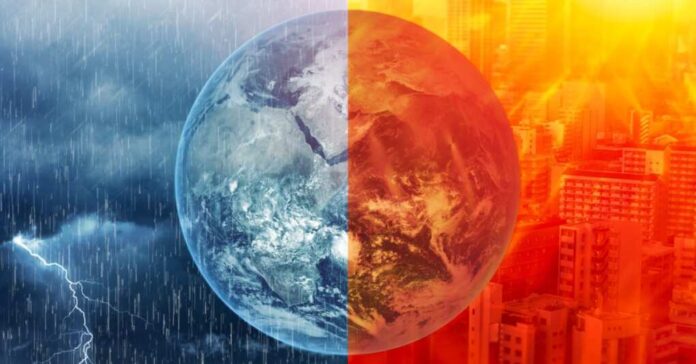In a startling announcement that has undoubtedly reverberated through the halls of Brussels, the European Union’s Copernicus Climate Change Service has declared 2024 the hottest year on record.
Yes, that’s correct: the hottest year ever recorded since data collection began. According to these climate experts, global temperatures have reached unprecedented levels, exceeding the alarming threshold of 1.5 degrees Celsius above pre-industrial levels.
Now, let’s take a moment to unpack this. The EU’s climate agency, in all its wisdom, has determined that the planet is heating up at an alarming rate. This, of course, is based on complex climate models and data interpretations that, conveniently, always seem to support the narrative of impending doom. One might wonder, with all this sophisticated modeling, why previous predictions have often missed the mark. But let’s not dwell on the past; after all, the future is where the fear lies.
The report highlights a series of extreme weather events that have affected various regions this year. We’ve seen severe droughts in Italy and South America, deadly floods in Nepal, Sudan, and Europe, and intense heat waves in Mexico, Mali, and Saudi Arabia. This combination of climate catastrophes emphasizes the urgency of addressing the situation.
But here’s the kicker: despite global pledges to reduce carbon emissions to net zero, 2024’s CO2 emissions are projected to reach an all-time high. That’s right. After years of climate conferences, accords, and agreements, we’re still pumping out carbon like there’s no tomorrow. One might start to question the efficacy of these grand international commitments.
The Copernicus report doesn’t stop there. It warns that the potential development of the La Niña weather pattern in 2025 could temporarily cool global temperatures but will not reverse the long-term warming trend. In other words, even when natural climate variations offer a respite, it’s not enough to counteract the relentless march toward a scorched Earth. How convenient.
Of course, no climate report would be complete without a call to action. The EU’s climate monitors urge immediate and substantial efforts to curb greenhouse gas emissions. They emphasize that the window to prevent the most catastrophic impacts of climate change is rapidly closing. It’s a familiar refrain: act now, or face the apocalypse.
But let’s take a step back and consider the broader context. The climate has been changing for millennia, long before the industrial revolution introduced significant human-made CO2 emissions. Ice ages have come and gone, deserts have formed and receded, all without the influence of fossil fuels. Yet, in today’s discourse, every hurricane, drought, or unseasonably warm day is attributed to human activity.
This isn’t to say that environmental stewardship isn’t important. Clean air, clean water, and the responsible use of resources are goals we should all strive for. But the perpetual state of panic promoted by reports like these serves more to advance political agendas than to foster rational discussion.
In the end, it’s worth asking: who benefits from this climate of fear? Governments gain more control through regulations and taxes. Corporations profit from green technologies subsidized by taxpayers. And international bodies like the EU bolster their relevance on the global stage.
So, as you read the latest headlines proclaiming 2024 as the hottest year on record, take a moment to question the narrative. Consider the motives behind the message. And remember that skepticism is not denial; it’s a necessary component of informed discourse.
After all, the climate may be changing, but the tactics of those wielding these reports remain as predictable as ever.



















